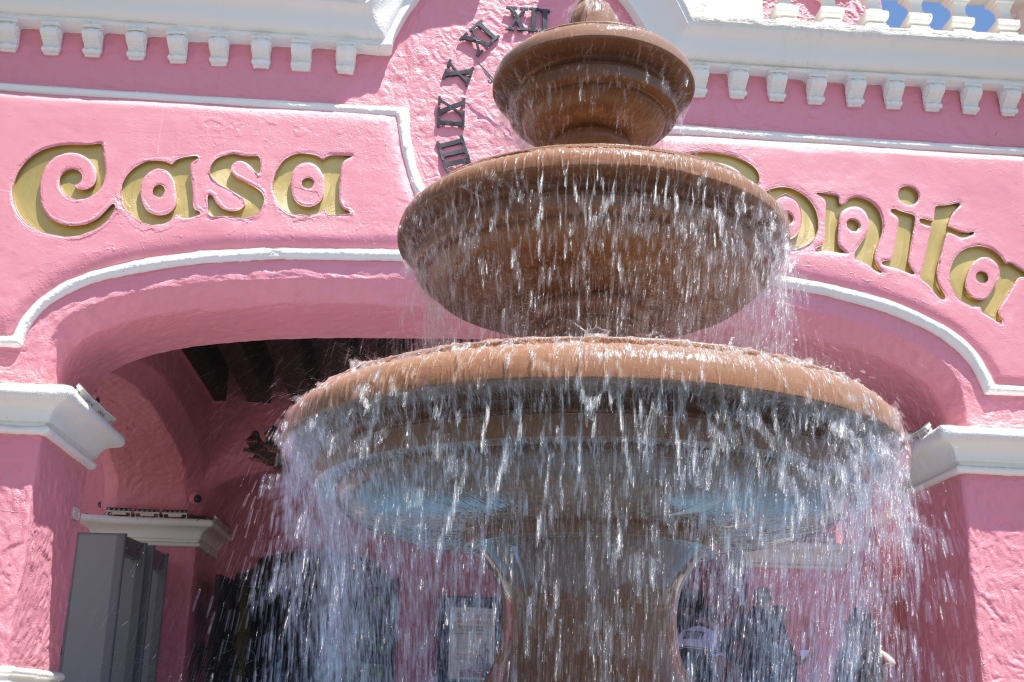
Casa Bonita’s decision on tipping makes good sense in a world gone mad with tipflation
Last Updated on July 13, 2023 by Admin
[ad_1]

To tip or not to tip: that is the question. Whether ’tis nobler in the mind to suffer the wilting gaze of the clerk or to tip everyone everywhere to allay the guilt and satisfy all. I’m going to ask my AP English teacher Carol Samson if I got the iambic pentameter right. Either way, this is the question many are asking this summer while eating out, ordering in, at the drive-through, or even at retail shops.
Like anyone who has ever worked in the service industry, I definitely tip and for exceptional service, I enjoy tipping beyond the customary amount. It feels good. Back in my waitressing and pizza delivery days, 10% was the norm. Today it’s 18-20% and some credit card machines suggest 22% or even 25%.
Sometimes a tip charge is added to the bill automatically. That’s understandable in the case of large groups which demand more time of wait staff and may under-tip as members dicker over the check. The “gratuity included,” however, makes the charge feel less like a tip for good service and more like an automatic surcharge especially when it is attached to an individual meal. Most irritating of all, tipping is no longer just for wait staff, hair stylists, tour guides, valets, and cab drivers. If I’m handed a $5 drip coffee at the drive-up, I’m asked to pony up more. This feels like tipflation.
So when iconic restaurant Casa Bonita announced it eliminated tipping in favor of paying staff $30 an hour, I was relieved. When meals are prepaid, as they are at this restaurant, it is unclear whether a tip is expected. During the restaurant’s soft opening, managers found people were not tipping. Now there is clarity.
News of the decision made not only Denver news but was reported on the New York Post and People magazine websites. Perhaps that’s because South Park show creators Matt Stone and Trey Parker own Casa Bonita or it was a slow news day or, more likely, it’s because people are experiencing tip fatigue and are frustrated with the convention’s endless vagaries.
This isn’t the first time in U.S. history that tipping has created consternation. The custom originated in medieval times when masters tipped serfs and servants for outstanding work. The custom was imported here in the mid-19th Century even as it was waning in Europe. Some Americans chafed at what they considered an extra surcharge on prices. Several states briefly outlawed the practice in 1915. Yet when federal minimum wage legislation passed in 1938, tipping was sufficiently common that the law differentiated between tipped and untipped jobs as it does today.
This year, under Colorado law, the minimum compensation for tipped jobs is $10.63 an hour and $13.65 for untipped ones. This means that a waiter who has to come to the table multiple times to take orders, bring food, refill drinks, and clean up gets a minimum of $10.63 an hour plus tips. The barista, on the other hand, who hands me a coffee gets at least $13.65. The same goes for the movie theater employee who hands me an $18 glass of mediocre wine to take into the movie. The expectation of tipping for regular-wage jobs doesn’t seem fair to tipped-wage employees or customers.
However, if businesses slowly get rid of tipping in favor of higher regular wages, as Casa Bonita did, it will raise prices and could impact the quality of service. It will no longer be possible to differentiate between an amazing tour guide and one going through the motions, a great haircut and a quick trim, a fun, chatty waitress, and the server who ignores the table in favor of his social media account. As frustrating as things are, the change may not be worth it.
Krista L. Kafer is a weekly Denver Post columnist. Follow her on Twitter: @kristakafer
Sign up for Sound Off to get a weekly roundup of our columns, editorials and more.
To send a letter to the editor about this article, submit online or check out our guidelines for how to submit by email or mail.
[ad_2]
Source link




